- Home
- Christina Lauren
Dark Wild Night
Dark Wild Night Read online
Praise for New York Times and #1 international bestselling author Christina Lauren
“Full of expertly drawn characters who will grab your heart and never let go, humor that will have you howling, and off-the-charts, toe-curling chemistry, Dark Wild Night is absolutely unforgettable. This is contemporary romance at its best! Beautifully written and remarkably compelling—it reminded me why Christina Lauren’s books have a place of honor on my bookshelf.”
—Sarah J. Maas
Sweet FILTHY BOY THE ROMANTIC TIMES 2014 BOOK OF THE YEAR
“A sexy, sweet treasure of a story. I loved every word.”
—Sylvia Day, #1 New York Times bestselling author of the Crossfire series
“A crazy, hilarious, and surprisingly realistic and touching adventure. . . . One of the freshest, funniest, and most emotionally authentic erotic romances.”
—Romantic Times Book Reviews
“No one is doing hot contemporary romance like Christina Lauren. Sweet Filthy Boy is beyond swoon-worthy.”
—Bookalicious
“Funny and adorably charming. . . . Tender, hot, and even heartbreaking at times, but so worth it.”
—Heroes and Heartbreakers
“Had my heart pounding from cover to cover. . . . A must-read!”
—Fangirlish
“A deliciously filthy romp that you’re going to love!”
—Martini Times Romance
“Sweet Filthy Boy has everything necessary for a great romance read. Love, passion, heat, turmoil, and humor are all perfectly combined. Add in the stellar writing and there is nothing more I could ask for.”
—Bookish Temptations
“Christina Lauren are my go-to gals for when I’m in the mood for a laugh-out-loud, sizzling, sexy romance.”
—Flirty and Dirty Book Blog
Dirty ROWDY THING
“Lauren has mastered writing delectable heroes and strong-willed heroines to match, and the contrast between rough-edged Finn and polished Harlow makes for a passionate romance.”
—Romantic Times Book Reviews
“Most of the time when I read contemporary romance, I find myself suffering the lead girl for the sake of the story. Maybe I just don’t identify with her, or I can’t imagine myself being friends with her. With Harlow, I don’t find myself just wanting to know her, I want to be her. She’s not afraid to say what she thinks, but she’s compassionate and thoughtful. . . . In a lot of ways, the most interesting female protagonist I’ve read in a long time.”
—That’s Normal
“Once again Christina Lauren have created a book boyfriend that will probably end up on every blogger’s top ten.”
—The Sub Club
“[A] smoking-hot story. I particularly appreciated . . . the modern tone. It felt of the moment.”
—Dear Author
The Beautiful Bastard series
“Hot . . . if you like your hookups early and plentiful. . . .”
—EW on Beautiful Stranger
“A devilishly depraved cross between a hardcore porn and a very special episode of The Office.”
—Perez Hilton on Beautiful Bastard
“A beautiful read, an astonishing love story, a couple whose journey I understood and felt from beginning to end—this is a book I would recommend with all my heart.”
—Natasha Is a Book Junkie on Beautiful Secret
“This book, like the others in this series, sucked me in right away, and I couldn’t get enough.”
—The Autumn Review on Beautiful Player
“The perfect blend of sex, sass, and heart, Beautiful Bastard is a steamy battle of wills that will get your blood pumping!”
—S. C. Stephens, #1 New York Times bestselling author of Thoughtless
Thank you for downloading this Gallery Books eBook.
* * *
Join our mailing list and get updates on new releases, deals, bonus content and other great books from Gallery Books and Simon & Schuster.
CLICK HERE TO SIGN UP
or visit us online to sign up at
eBookNews.SimonandSchuster.com
For Eddie, our Superman
Chapter ONE
Lola
I MENTALLY DRAW THE panels of the scene before me as we follow the receptionist down the marble hallway: the woman wears six-inch black heels, her legs go on forever, her hips shift with each step.
Her hips shift left.
Her hips shift right.
Her hips shift left.
My agent, Benny, leans in. “Don’t be nervous,” he whispers.
“I’m fine,” I lie, but he just snorts in response, straightening.
“The deal is all drafted, Lola. You’re here to sign, not to impress anyone. Smile! Today is the fun part.”
I nod, trying to trick my thoughts into agreement—Look at this office! Look at these people! Bright lights! Big city!—but it’s a wasted effort. I’ve been writing and drawing Razor Fish since I was twelve, and every single second of the fun part, to me, has been creating it. The terrifying part is walking down a sterile hallway lined with glass-front cubicles and glossy framed movie posters to sign a seven-figure contract for the film translation.
My stomach seems lodged somewhere in my windpipe and I go back to my safe place.
Her hips shift right.
Her hips shift left.
Her long legs span from the earth up to the clouds.
The receptionist stops at a door and opens it. “Here we are.”
The studio offices are almost obscenely fancy; the entire building feels like the modern equivalent of a castle. Every wall is brushed aluminum and marble; every door is glass. Each piece of furniture is either marble or black leather. Benny leads us in with confidence, crossing the room to shake hands with the executives on the other side of the table. I follow him in, but when I release the glass door it swings closed heavily, and the jarring gong of glass abruptly meeting metal echoes through the room—a sound broken only by two startled gasps coming from across the table.
Fuck.
I’ve seen enough photos of myself in stressful public situations in the past three months to know that, right now, I don’t look ruffled. I don’t duck my head and apologize; I don’t slouch or wince even though, as soon as the door slams dissonantly shut, I’m tied into a hundred thousand knots inside. Apparently, I’m just good at hiding it.
The New York Times gave Razor Fish a brilliant review, but found me “aloof” during an interview that I’d believed to be spirited and engaging. The Los Angeles Times described our phone call as “a series of long, thoughtful pauses followed by single-word answers” whereas I had told my friend Oliver that I was worried I’d talked their ear off.
When I turn to face the executives, I’m unsurprised to find they both look as polished as the architecture. Neither woman across the table says anything about my less-than-subtle entrance, but I swear the slamming echo reverberates throughout the room the entire time I walk from the door to the table.
Benny winks and gestures for me to sit down. I find a soft leather chair, smooth my dress over my thighs, and carefully take a seat.
My hands are clammy, my heart thundering. I’m counting to twenty over and over to keep from panicking.
The panel shows the girl, chin up, with a ball of fire in her lungs.
“Lorelei, it’s wonderful to meet you face-to-face.”
I look to the woman who’s spoken and take her offered hand to shake. Her hair is blond and glossy, perfect makeup, perfect clothes, perfectly expressionless. From my early-morning creeping on IMDb, I’m fairly sure she’s Angela Marshall, the executive producer who, with her frequent collaborator Austin Adams, fought to win the rights to Razor Fish in the bidding war I
didn’t even know was happening last week.
But her hair in the picture was red. My eyes shoot to the woman on her left, but she has soft brown skin, black hair, and enormous brown eyes. Definitely not Angela Marshall. The only person I’ve seen frequently in magazines and photos is Austin, but there isn’t another man besides Benny in the room.
“Please, call me Lola. It’s nice to meet you . . . ?” I let the question hang, because in normal situations I think this is where the names are exchanged. Instead, the handshake goes on forever, and now I don’t know where to direct my effusive gratitude. Why isn’t anyone introducing themselves? Am I expected to know every name here?
Releasing my hand, the woman finally says, “Angela Marshall.”
I sense that it was some sort of test.
“So good to meet you,” I say again. “I can’t believe . . .”
My thought ends there and they all watch me, waiting to hear what I’m going to say. Truthfully, I could go on for days about all the things I can’t believe.
I can’t believe Razor Fish is out in the world.
I can’t believe people are buying it.
And I really can’t believe fancy people working at this enormous movie studio are making my graphic novel into a movie.
“We can’t believe any of it.” Benny comes to my rescue, but laughs awkwardly. “We’re just thrilled about how this all went down. Thrilled.”
The woman next to Angela gives him the Oh, I’m sure you are face, because we all know Benny made out pretty great in the deal: twenty percent of a lot of money. But that realization pulls the other one with it: I made out even better than he did. My life is forever changed with this single transaction. We’re here to sign a contract, to discuss casting, to lay out the schedule.
The panel shows the girl, waking up with a start as a steel rod is shoved into her backbone.
I hold my hand out to the other woman. “Hi, sorry I didn’t get your name. I’m Lola Castle.”
She introduces herself as Roya Lajani, and then looks down at some pages in front of her as she takes a breath to start whatever conversation happens in these moments. But before she can speak, the door swings open and the man I recognize as Austin Adams breezes in, letting in a blast of ringing phones, heels clicking down the hall, and voices booming from adjacent rooms.
“Lola!” he says to me in a warm, cheerful voice and then winces as the door crashes shut behind him. Looking to Angela, he says, “I hate that fucking door. When the hell is Julie getting it fixed?”
Angela waves her hand in a Don’t worry about it gesture and watches as Austin ignores the seat next to her and pulls out the chair on my right. Sitting down, he studies my face, smiling widely at me.
“I’m a huge fan,” he says without further preamble, without even introducing himself. “Honestly. I’m just in awe of you.”
“I . . . wow,” I say, laughing awkwardly. “Thanks.”
“Please tell me you’re working on something new. I’m addicted to your art, your stories, everything.”
“My next graphic novel is out this fall. It’s called Junebug.” I sense Austin leaning in excitedly and instinctively add, “I’m still working on it.” When I look back up at him, he’s just shaking his head at me in wonder.
“Is this surreal?” His eyes turn up warmly as his smile softens. “Has it sunk in yet that you’re the mastermind behind the next huge action movie?”
This line, in this situation—where I worry I’m going to hear a lot of empty praise—would normally make me hold my breath in order to tamp down a skeptical reaction, but despite being a big-shot producer and director, Austin already seems so genuine. He’s good-looking but totally disheveled: his reddish blond hair looks finger combed, he’s unshaven, in jeans and wearing a button-down shirt that he’s misaligned, leaving it longer at the hem on the right side than the left. The starched collar is tucked in on one side, too. He’s a very expensive mess.
“Thanks,” I say, balling my hands together so I don’t start to fidget with my earlobe or my hair.
“I mean it,” he adds, leaning both elbows on his thighs, still focusing only on me. I’m not sure he’s even acknowledged Benny yet. My knuckles have gone white. “I know we’re supposed to say that, but in this case it’s really true. I was obsessed from the very first page, and told Angela and Roya we had to have it.”
“We agreed,” Roya chimes in, unnecessarily.
“Well,” I say, struggling to find something other to say than another thank you. “That’s great. I’m glad that it seems to have grabbed a little audience.”
“Little?” he scoffs, leaning back in his chair and glancing down at his shirt before doing a double take. “Motherfuck. I can’t even dress myself.”
I pull my lower lip into my mouth to crush the laugh that is threatening to burst from my throat. This entire situation was sending me into mute-panic territory until he walked in. I grew up shopping at Goodwill, we were on food stamps for a few years, and I still drive a 1989 Chevy. I can’t even process how this is going to change my life, and the sterile Stepford Sisters across the table only add to the foreign atmosphere of the room. But Austin seems like someone I can imagine working with.
“I know you’ve been asked this before,” he says, “because I’ve read the interviews. But I want to hear it from you, the true inside scoop. What made you start writing this book? What really inspired you?”
I have indeed been asked this before—so many times, in fact, that I have a standard, canned answer: I love the everyday female superhero because she gives us an opportunity to handle complicated social and political imbalances head-on, in popular culture and art. I wrote Quinn Stone as the everygirl, in the spirit of Clarisse Starling or Sarah Connor: she becomes a hero via her own bootstraps. Quinn is found by a strange, fishlike man from another time dimension. This creature, Razor, helps Quinn find the courage to fight for herself and her community, and in so doing, he realizes he doesn’t want to leave her to go home, even when he eventually can. The idea came to me from a dream where a big, muscular man covered in scales was in my room, telling me to clean up my closet. The rest of the day I wondered what it would be like if he really did show up in my bedroom. I named him Razor Fish. I imagined my Razor wouldn’t give a crap about my messy closet; he’d tell me to get the hell up and fight for something.
But that isn’t the answer that bubbles up today.
“I was pissed-off,” I admit. “I thought grown-ups were either assholes or fuckups.” I watch Austin’s green eyes go a little wide before he exhales, nodding subtly in understanding. “I was angry with my dad for being a mess, and my mom for being such a coward. I’m sure it’s why I dreamt of Razor Fish in the first place: he’s abrasive and doesn’t always understand Quinn, but deep down he loves her and wants her to be looked after. Drawing him and how he initially doesn’t understand her humanity but then trains her to fight, and eventually defers to her . . . getting lost in their little story was the treat I gave myself when I finished dishes and homework and was alone at night.”
The room is quiet and I feel an unfamiliar need to fill the space. “I liked seeing Razor start to appreciate the ways Quinn is strong that aren’t classic. She’s scrawny, she’s quiet. She’s not built like an amazon. Her strengths are more subtle: she’s observant. She trusts herself without question. I want to make sure that’s captured. There is a lot of violence and action there, but Razor doesn’t have a revelation about her when she learns to throw a punch. He has a revelation about her when she figures out how to stand up to him.”
I glance at Benny—this is the most open I’ve ever been about my life and my book, and surprise is clear on his face.
“How old were you when your mom left?” Austin guesses. He’s acting like there isn’t anyone else in the room with us, and it’s easy to pretend there isn’t, the way everyone has grown so still.
“Twelve. Right after my dad got back from Afghanistan.”
The room seems
to be swallowed by silence after I say this, and Austin finally heaves out a sigh. “Well, that’s shit.”
Finally, I laugh.
He leans in again, eyes insistent when he says, “I love this story, Lola. I love these characters. We’ve got a screenwriter who will knock this out of the park. Do you know Langdon McAfee?”
I shake my head, embarrassed because the way he says it makes me feel like I should, but Austin waves away the question. “He’s great. Laid-back, smart, organized. He wants to cowrite this with you.”
I open my mouth at this unexpected revelation—me, cowriting a screenplay—and nothing but a choking noise comes out.
Austin keeps talking through my stunned reaction: “I want to talk a lot, okay?” He’s already nodding as if prompting me. “I want this to be everything you want it to be.” Leaning in, he smiles and says, “I want you to see your dream come to life.”
* * *
“TELL ME THE details again,” Oliver says. “I’m not sure you were speaking English the first time.”
He’s right. I’ve barely caught my breath—let alone remembered how to make words—since I tripped into his comic book store, Downtown Graffick, already babbling. Oliver looked up when I burst in, his sweet smile slowly dissolving into confusion as I spilled a thousand incoherent words and my emotions all over the floor. I spent two hours on the drive back from L.A. on the phone with my dad, struggling to process the rest of the meeting. Not that it really helped because, here, saying it out loud in front of one of my favorite people makes it surreal all over again.
In the eight months we’ve been friends, I don’t think Oliver has ever seen me like this: stuttering and breathless and near tears because I’m so overwhelmed. I pride myself on being steady and unruffled even with my friends, and so I’m trying to get myself together, but goddamn, it is hard.
They’re
making
a movie
out of my childhood ideas.
“Okay,” I start again, taking a huge breath and blowing it out slowly. “Last week, Benny called and said something was going on with the film option.”

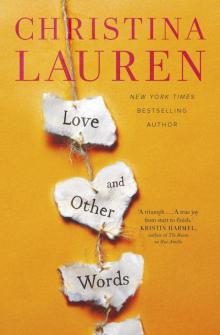 Love and Other Words
Love and Other Words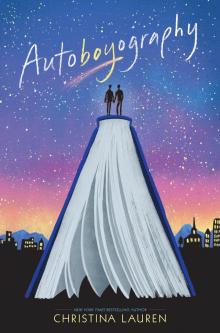 Autoboyography
Autoboyography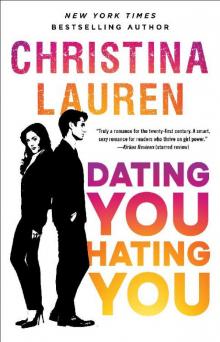 Dating You / Hating You
Dating You / Hating You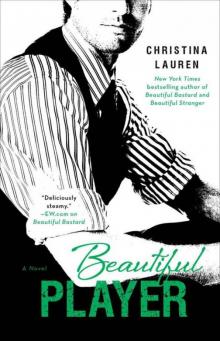 Beautiful Player
Beautiful Player Beautiful Bombshell
Beautiful Bombshell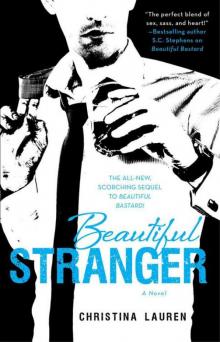 Beautiful Stranger
Beautiful Stranger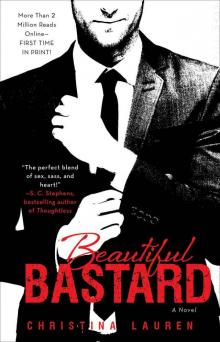 Beautiful Bastard
Beautiful Bastard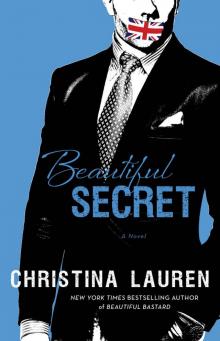 Beautiful Secret
Beautiful Secret The Unhoneymooners
The Unhoneymooners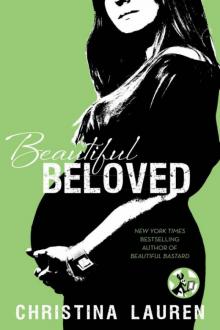 Beautiful Beloved
Beautiful Beloved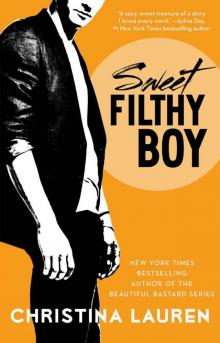 Sweet Filthy Boy
Sweet Filthy Boy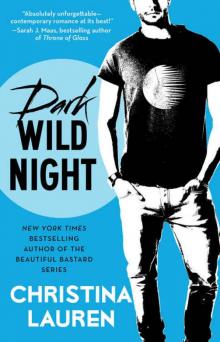 Dark Wild Night
Dark Wild Night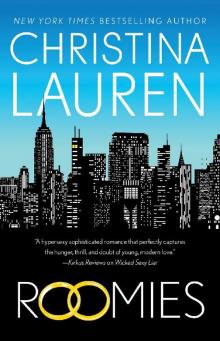 Roomies
Roomies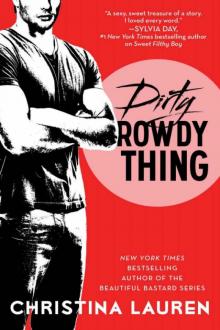 Dirty Rowdy Thing
Dirty Rowdy Thing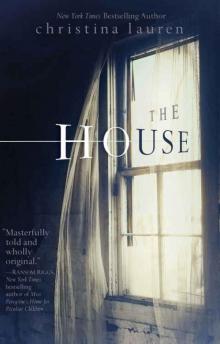 The House
The House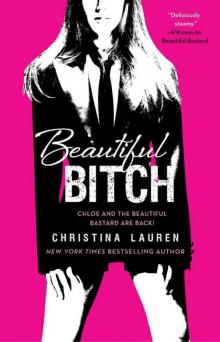 Beautiful Bitch
Beautiful Bitch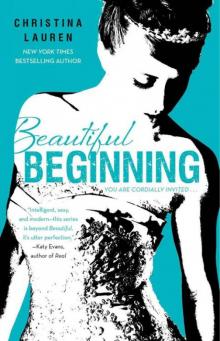 Beautiful Beginning
Beautiful Beginning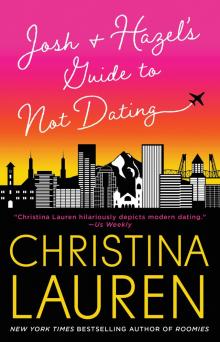 Josh and Hazel's Guide to Not Dating
Josh and Hazel's Guide to Not Dating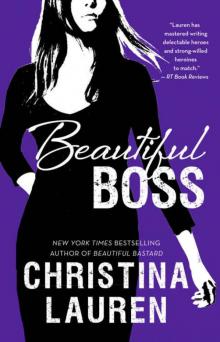 Beautiful Boss
Beautiful Boss In a Holidaze
In a Holidaze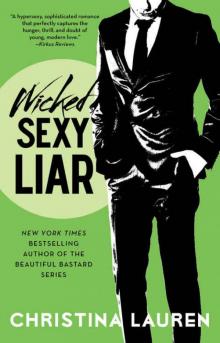 Wicked Sexy Liar
Wicked Sexy Liar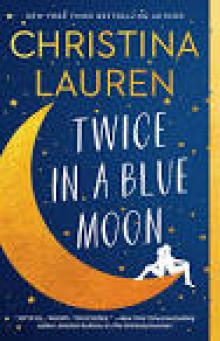 Twice in a Blue Moon
Twice in a Blue Moon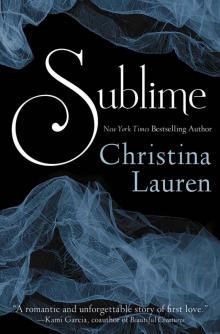 Sublime
Sublime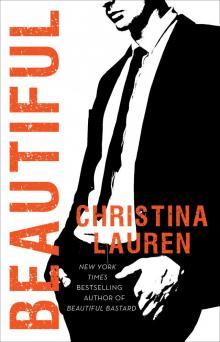 Beautiful
Beautiful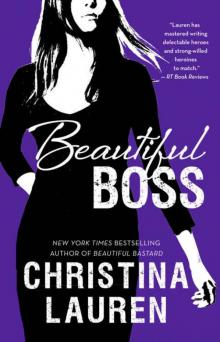 Beautiful Boss (Beautiful #9)
Beautiful Boss (Beautiful #9)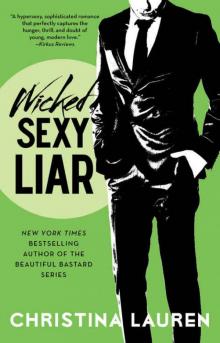 Wicked Sexy Liar (Wild Seasons #4)
Wicked Sexy Liar (Wild Seasons #4)